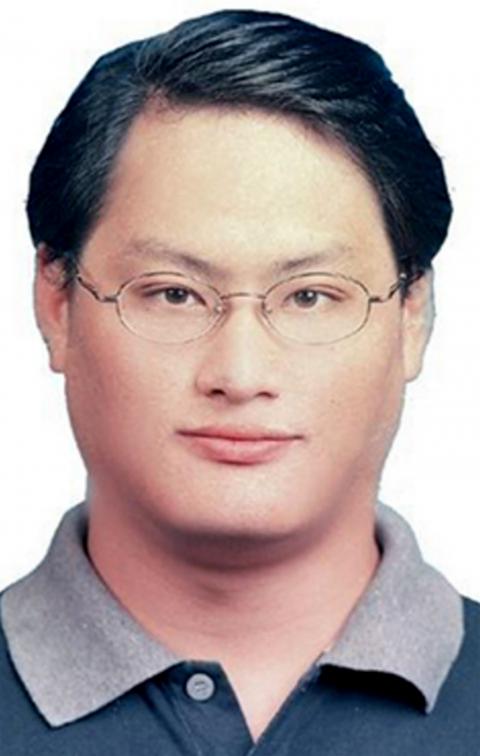The Presidential Office on Thursday expressed gratitude for the European Parliament’s support for Taiwanese human rights advocate Lee Ming-che (李明哲), who has been detained in China for more than three months on charges of subversion of state power.
“We’re very grateful for all the international assistance on the case,” Presidential Office spokesman Sidney Lin (林鶴明) said in response to the adoption of a resolution on Thursday by the European Parliament that called for Beijing to release Lee.
Lin also repeated a call for the Chinese authorities to “cautiously deal with Lee’s case in a civilized way” and to let him come home as soon as possible.

Earlier in the day, members of the European Parliament discussed the cases of Lee and 2010 Nobel Peace Prize laureate Liu Xiaobo (劉曉波) and during a plenary session passed a resolution calling for Beijing to release the two.
Lee — a former Democratic Progressive Party worker, a staff member at Wenshan Community College in Taipei and a volunteer at local non-governmental organization (NGO) Covenants Watch — was detained by China after entering Zhuhai via Macau on March 19.
Taiwan has repeatedly urged Beijing to release Lee, but to no avail.
Lee’s case has sparked concern from local and international human rights groups.
The European Parliament called on Beijing to immediately release Liu as well as his wife from house arrest, and allow him to seek medical treatment wherever he wishes, according to a statement issued by the parliament.
“The human rights activist has been imprisoned since 2009 for cowriting a manifesto known as Charter 08, calling for fundamental reforms and is being denied to move outside China for treatment of his late-stage liver cancer,” the statement said.
The statement said that the parliament is highly concerned by China’s “continued efforts to silence civil society actors” with the help of new laws on state security, counterterrorism, cybersecurity and foreign NGO management.
The parliament urges the EU to continue raising the issue of human rights violations in its dialogues with Beijing and to force China to live up to its international human rights commitments, the statement said.

The Taiwanese passport ranked 33rd in a global listing of passports by convenience this month, rising three places from last month’s ranking, but matching its position in January last year. The Henley Passport Index, an international ranking of passports by the number of designations its holder can travel to without a visa, showed that the Taiwan passport enables holders to travel to 139 countries and territories without a visa. Singapore’s passport was ranked the most powerful with visa-free access to 192 destinations out of 227, according to the index published on Tuesday by UK-based migration investment consultancy firm Henley and Partners. Japan’s and

NATIONAL SECURITY THREAT: An official said that Guan Guan’s comments had gone beyond the threshold of free speech, as she advocated for the destruction of the ROC China-born media influencer Guan Guan’s (關關) residency permit has been revoked for repeatedly posting pro-China content that threatens national security, the National Immigration Agency said yesterday. Guan Guan has said many controversial things in her videos posted to Douyin (抖音), including “the red flag will soon be painted all over Taiwan” and “Taiwan is an inseparable part of China,” while expressing hope for expedited “reunification.” The agency received multiple reports alleging that Guan Guan had advocated for armed reunification last year. After investigating, the agency last month issued a notice requiring her to appear and account for her actions. Guan Guan appeared as required,

Japan and the Philippines yesterday signed a defense pact that would allow the tax-free provision of ammunition, fuel, food and other necessities when their forces stage joint training to boost deterrence against China’s growing aggression in the region and to bolster their preparation for natural disasters. Japan has faced increasing political, trade and security tensions with China, which was angered by Japanese Prime Minister Sanae Takaichi’s remark that a Chinese attack on Taiwan would be a survival-threatening situation for Japan, triggering a military response. Japan and the Philippines have also had separate territorial conflicts with Beijing in the East and South China

A strong cold air mass is expected to arrive tonight, bringing a change in weather and a drop in temperature, the Central Weather Administration (CWA) said. The coldest time would be early on Thursday morning, with temperatures in some areas dipping as low as 8°C, it said. Daytime highs yesterday were 22°C to 24°C in northern and eastern Taiwan, and about 25°C to 28°C in the central and southern regions, it said. However, nighttime lows would dip to about 15°C to 16°C in central and northern Taiwan as well as the northeast, and 17°C to 19°C elsewhere, it said. Tropical Storm Nokaen, currently